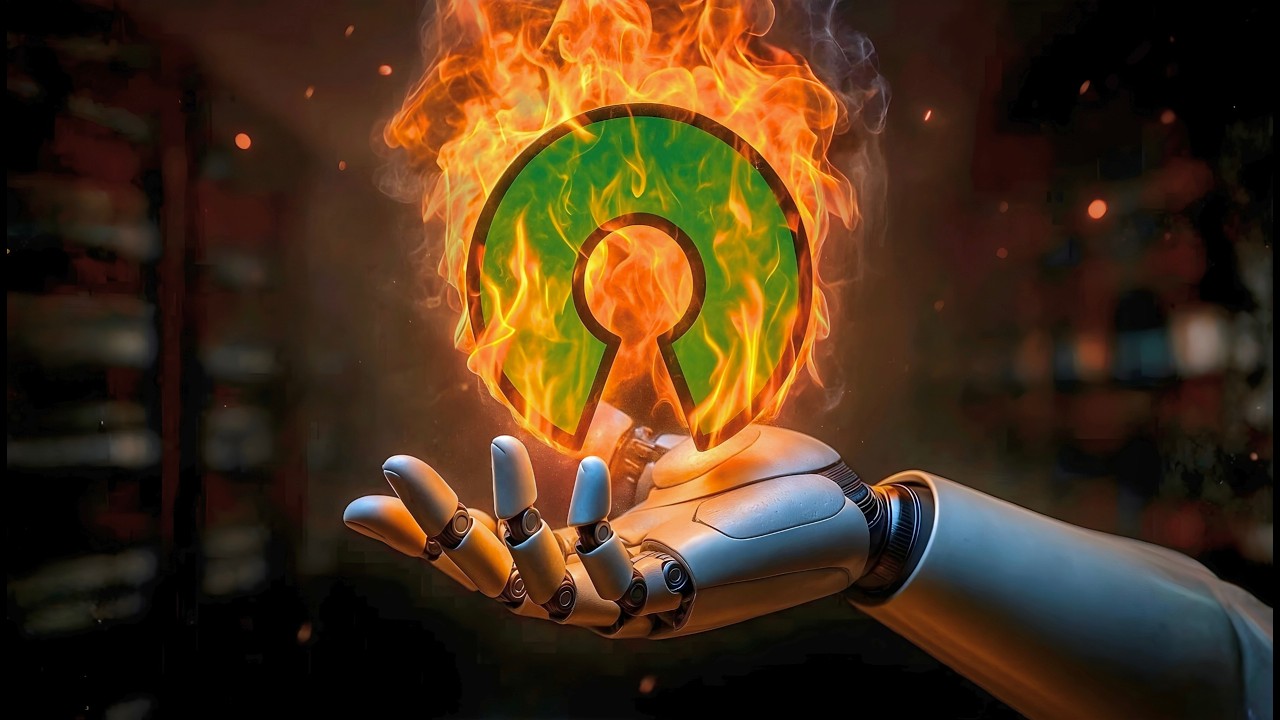The panel of prominent open source maintainers discusses the importance of building trust and understanding within communities before making meaningful contributions, cautioning against superficial or AI-generated pull requests that lack context and can burden maintainers. They emphasize patience, transparency, and engagement as keys to successful open source collaboration, while encouraging contributors to create their own projects to better showcase their skills.
The video features a panel discussion with prominent open source maintainers: TJ (former core maintainer of Neovim), Adam (creator of Tailwind CSS), Taylor Otwell (creator of Laravel), and Mitchell (creator of Ghosty and other projects). They discuss the right way to contribute to open source, sparked by a viral example where a fork of Express.js received repetitive, meaningless pull requests updating the README with a name, causing frustration in the community. The panel emphasizes the importance of joining and understanding the community before making contributions, starting with small, meaningful changes like bug fixes rather than large refactors or superficial documentation edits.
Mitchell highlights that trust is key in open source contributions; maintainers are more willing to accept significant changes from contributors who have proven their reliability over time. He advises against new contributors focusing on documentation or refactoring, as these often add noise or risk breaking existing functionality. TJ agrees, noting that refactoring without deep knowledge of the project can lead to worse outcomes, especially in complex projects like Neovim that integrate patches from other sources. Taylor adds that pull requests should be context-aware, minimal, and ideally driven by real-world needs rather than speculative features invented in isolation.
The panel also discusses the challenges of managing large open source projects, including triaging issues and contributions. Mitchell explains how his project uses a trusted group of helpers to manage community discussions and triage issues, a system that organically grows as contributors demonstrate commitment and understanding. They stress the value of engaging with the community through discussions before submitting pull requests to avoid frustration and wasted effort. The conversation also touches on the personal rewards and challenges of maintaining open source projects, acknowledging the emotional toll but also the privilege of impacting users worldwide.
A significant portion of the discussion addresses the rise of AI-generated contributions. The maintainers note an increase in pull requests created by large language models (LLMs), often involving random refactors or fixes without deep understanding. They emphasize the importance of transparency about AI usage and caution against submitting AI-generated code without proper review, as it can waste maintainers’ time and damage trust. Taylor mentions that many AI-driven PRs are quickly closed due to lack of context or real benefit, and Adam echoes the need for maintainers to triage efficiently given the volume of contributions they receive.
Finally, the panel encourages aspiring contributors to consider creating their own open source projects as a way to learn, showcase their skills, and build community. They highlight that owning a project provides a clearer view of a contributor’s abilities than isolated pull requests. The discussion closes with reflections on the evolving open source landscape, the importance of patience and humility, and the ongoing balance between the benefits and challenges of open source work. The maintainers share their contact points and express enthusiasm for continued collaboration and growth in the open source ecosystem.
